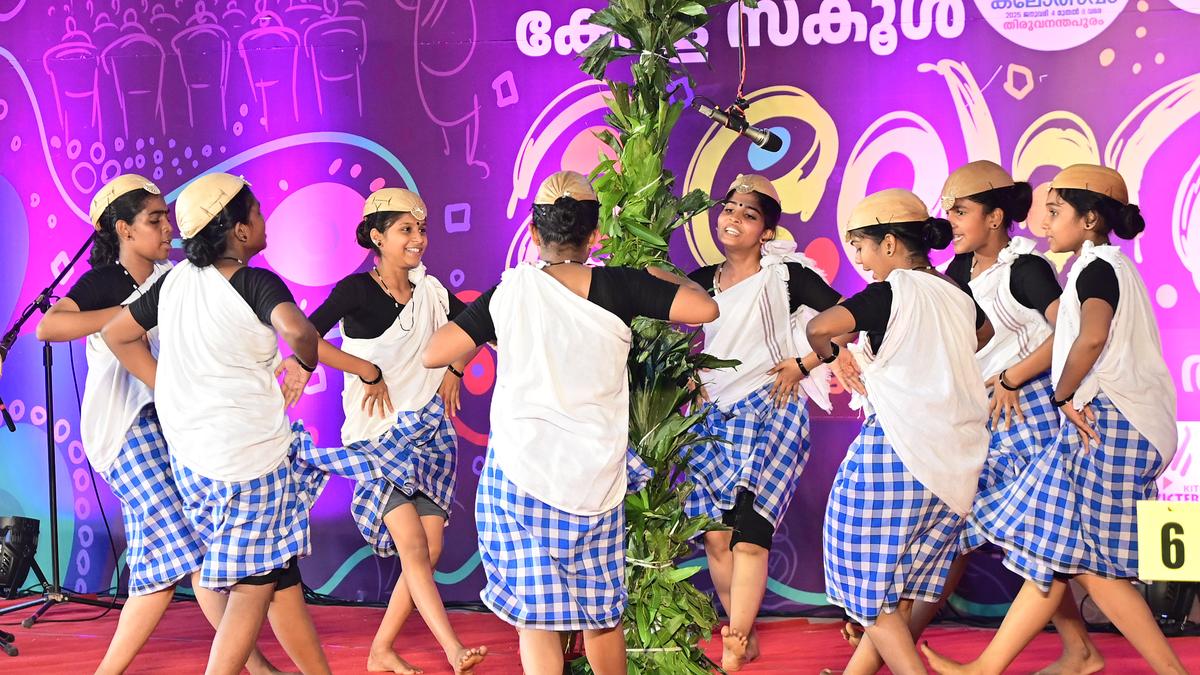
Tribal art forms make historic debut at school arts festival
The Hindu
Experience the powerful debut of Mangalamkali at the State School Arts Festival, showcasing tribal art and social commentary.
The pulsating beats of thudi, a traditional tribal percussion instrument, echoed through the Kanakakkunnu Palace compound on Saturday as Mangalamkali made its highly anticipated debut at the 63rd State School Arts Festival.
This year’s event marks a historic first with the introduction of tribal events, expanding the festival’s scope to include performances from Kerala’s indigenous communities.
Mangalamkali, an evocative and emotional art form of the Mavilar and Malavettuvar tribes of Kasaragod, captivated the audience with its rhythmic intensity and powerful social commentary. Traditionally performed during marriage ceremonies, Mangalamkali goes beyond mere celebration; it is a profound expression of the anguish and struggles faced by these marginalised tribes.
The art form is typically performed on four key occasions — Kaathukuthu Mangalam (maiden ear piercing), Thirandu Mangalam (celebrating menarche), Thalikettu Mangalam (marriage), and Pungamangalam (celebrating the ninth month of pregnancy).
What sets Mangalamkali apart is its deep social context. While rooted in celebration, the songs also carry themes of protest and resilience, addressing issues such as exploitation, social inequity, and the everyday challenges faced by the tribes.
These performances are traditionally held at the houses of the landed aristocracy or upper castes, where the tribespeople will sing songs that voiced both their joys and grievances, confronting social realities with quiet defiance.
The performers, heads bowed in humility, use body movements such as thumping on their backs to symbolise resistance against exploitation and slavery. The songs also reflect the deep connection the tribes have with forest knowledge and ancestral wisdom, themes largely overlooked in mainstream historical narratives.

Bhanu Prakash Yeturu, Deputy Election Commissioner, Election Commission of India, chaired a zonal-level review meeting on Special Intensive Revision (SIR) works, here on Tuesday. The meeting, which witnessed the participation of 10 District Collectors (District Election Officers), involved high-level oversight by national and State election authorities.












